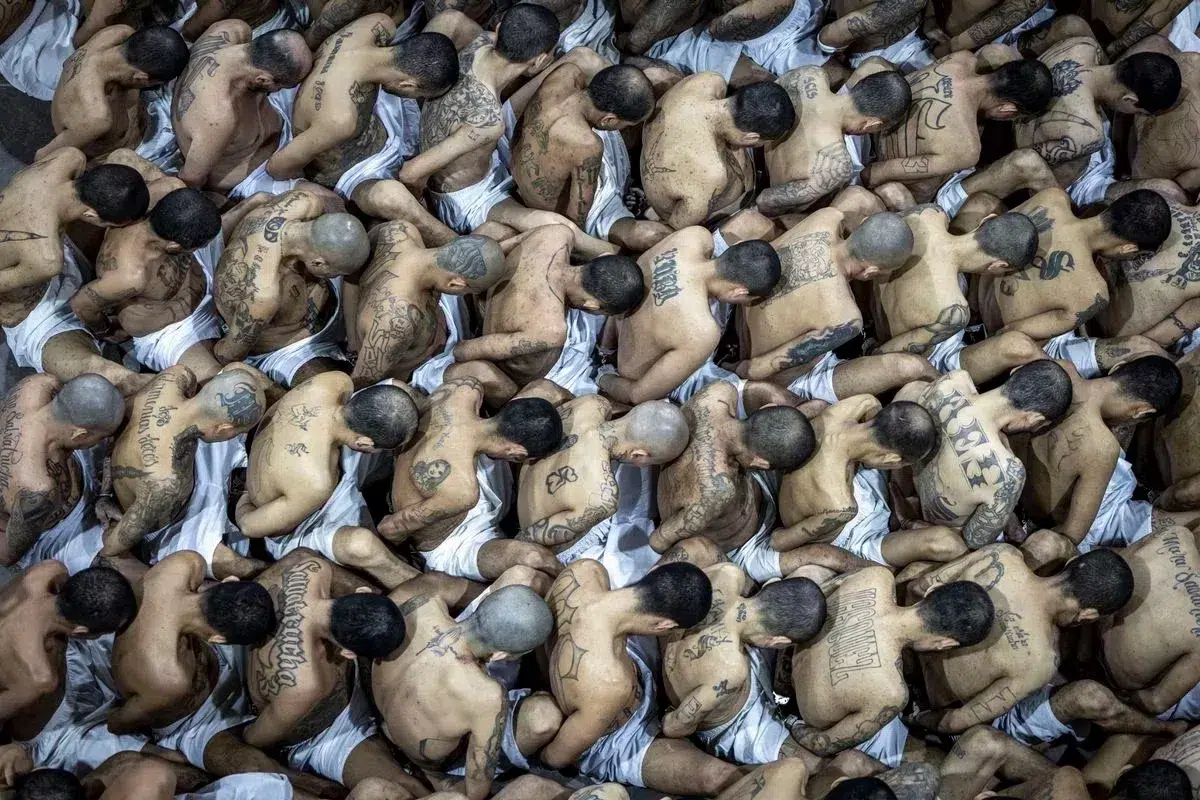The details revealed in an exhaustive report by Cristosal, El Salvador’s leading human rights organization, are shocking and confirm that President Nayib Bukele is willing to circumvent any limits that might stop his all-out war against criminal organizations. The investigation shows the disproportionate number of innocent people reached by the brutal measures deployed against the so-called maras – arbitrary arrests, torture – and the accounts collected, after interviewing hundreds of people arrested by mistake or who remained locked up for months before being declared innocent by a court, document deaths by asphyxiation or strangulation, electric shocks, lack of medical attention, forced disappearances. During the first year of the emergency regime – which ended in March – 153 prisoners died, at least 29 by violent death and another 46 by “probable violent death” or “suspected criminality”.
Bukele openly scorns the denunciations of NGOs, which he insults unreservedly, multilateral organizations and even the United Nations. The president has managed to curb the expansion of gangs, especially Mara Salvatrucha-13 and Barrio 18, but the other side of the coin of this unscrupulous war is the profound deterioration of the rule of law and respect for human rights. He governs at the stroke of a tweet, has turned state policies into a repertoire of gimmicky slogans and is determined to perpetuate the regime of exception at the cost of a very serious restriction of freedoms and constant abuses. This distressing panorama is compounded by systematic attacks on critical voices. The digital newspaper El Faro, a reference media in the region, had to move its administrative operations to Costa Rica in the face of the authorities’ siege. That newspaper witnessed the turnaround in Bukele’s strategy with the gangs. At first he sought a rapprochement with these criminal groups and negotiated with them. After breaking the pact, the gangs perpetrated a massacre that left almost 90 dead in a single weekend. And the regime of exception began.
The motivations for this turn of events are eminently political. Despite the allegations, Bukele enjoys high popularity, has managed to crush the opposition and, after changing the constitutional rules of the game that prohibited reelection, is preparing to stay in power by running in the next elections, scheduled for February 2024. Bukele, who is already an explicit model for the Latin American ultra-right, is installed in a deep authoritarian career. Denouncements are not enough, it is urgent to articulate a political and civil society front capable of acting as a retaining wall and becoming a counter-power.
El País: https://elpais.com/opinion/2023-05-31/horror-en-el-salvador.html
Horror en El Salvador
Los detalles que revela un exhaustivo informe de Cristosal, la principal organización de El Salvador en defensa de los derechos humanos, resultan estremecedores y confirman que el presidente, Nayib Bukele, está dispuesto a sortear cualquier límite que pueda frenar su guerra sin cuartel contra las organizaciones criminales. La investigación muestra el desproporcionado número de inocentes a quienes han alcanzado las brutales medidas desplegadas contra las llamadas maras —detenciones arbitrarias, torturas— y los relatos recogidos, tras entrevistar a cientos de personas detenidas por error o que permanecieron encerradas durante meses antes de ser declaradas inocentes por un tribunal, documentan muertes por asfixia o estrangulamiento, descargas eléctricas, falta de atención médica, desapariciones forzadas. Durante el primer año de régimen de excepción —que se cumplió en marzo— fallecieron 153 presos, al menos 29 por muerte violenta y otros 46 por “probable muerte violenta” o “sospechosa de criminalidad”.
Bukele desprecia abiertamente las denuncias de las ONG, a las que insulta sin reservas, los organismos multilaterales e incluso Naciones Unidas. El presidente ha logrado frenar la expansión de las pandillas, especialmente la Mara Salvatrucha-13 y el Barrio 18, pero la otra cara de la moneda de esta guerra sin escrúpulos es el profundo deterioro del Estado de derecho y del respeto a los derechos humanos. Gobierna a golpe de tuit, ha hecho de las políticas de Estado un repertorio de eslóganes efectistas y está decidido a perpetuar el régimen de excepción a costa de una gravísima restricción de las libertades y de abusos constantes. A este angustioso panorama se suman los ataques sistemáticos a las voces críticas. El periódico digital El Faro, un medio de referencia en la región, tuvo que trasladar sus operaciones administrativas a Costa Rica ante el asedio de las autoridades. Ese diario fue testigo del giro de la estrategia de Bukele con las pandillas. Al principio buscó un acercamiento con estos grupos criminales y negoció con ellos. Tras la ruptura del pacto, las maras perpetraron una matanza que dejó casi 90 muertos en un solo fin de semana. Y comenzó el régimen de excepción.
Las motivaciones de ese giro son eminentemente políticas. A pesar de las denuncias, Bukele goza de una elevada popularidad, ha logrado aplastar a la oposición y, tras cambiar las reglas de juego constitucionales que prohibían la reelección, se prepara para mantenerse en el poder presentándose a las próximas elecciones, previstas para febrero de 2024. Bukele, que ya es un modelo explícito para la ultraderecha latinoamericana, está instalado en una profunda carrera autoritaria. No bastan las denuncias, es urgente la articulación de un frente político y de la sociedad civil capaz de actuar como muro de contención y convertirse en contrapoder.
El País: https://elpais.com/opinion/2023-05-31/horror-en-el-salvador.html

